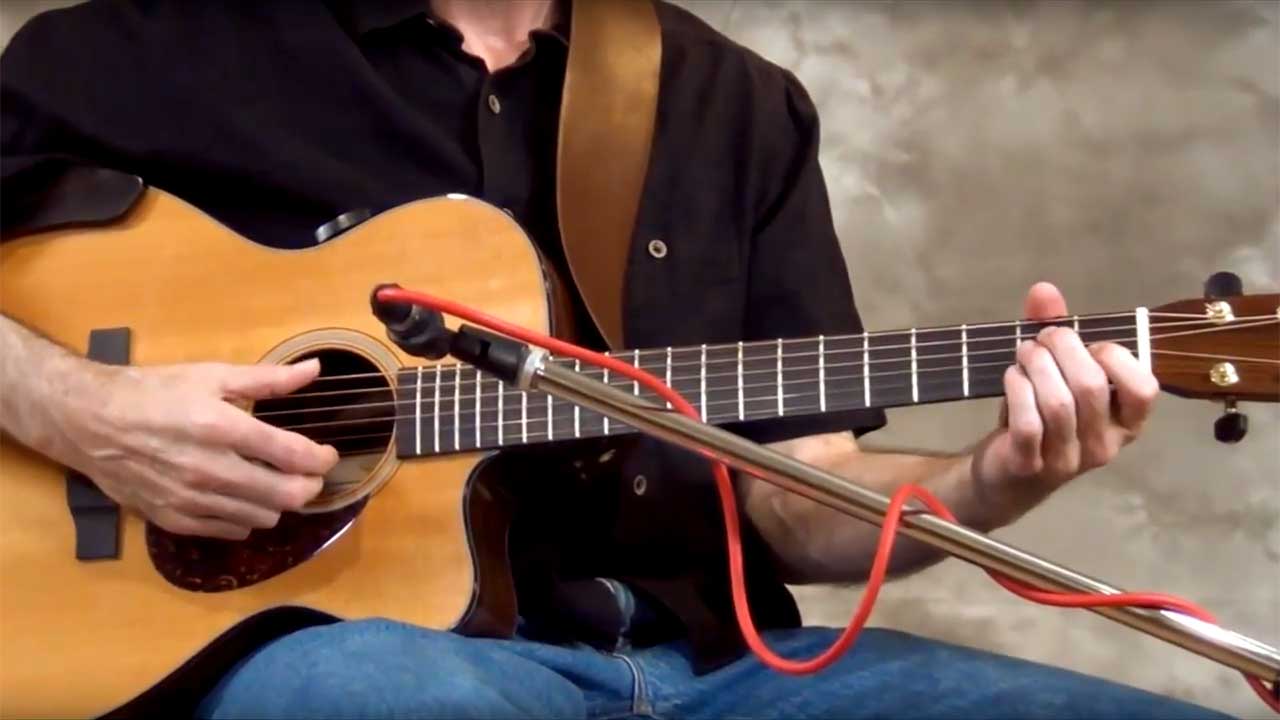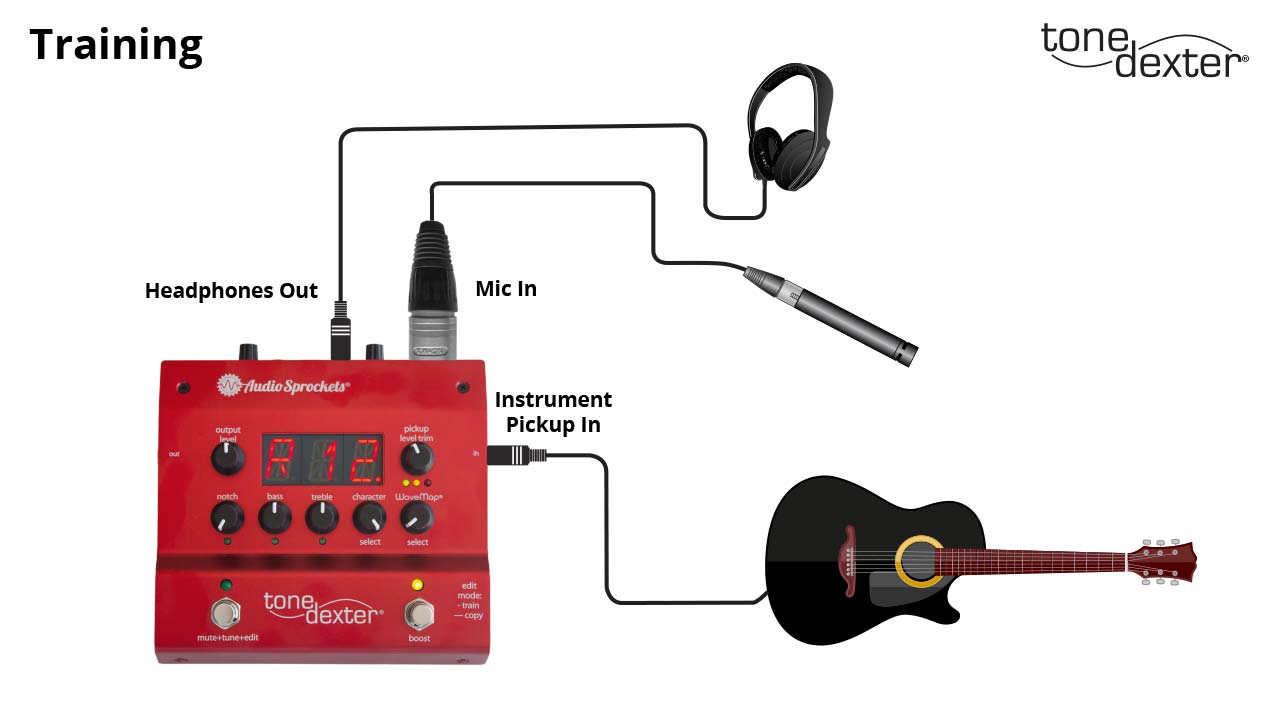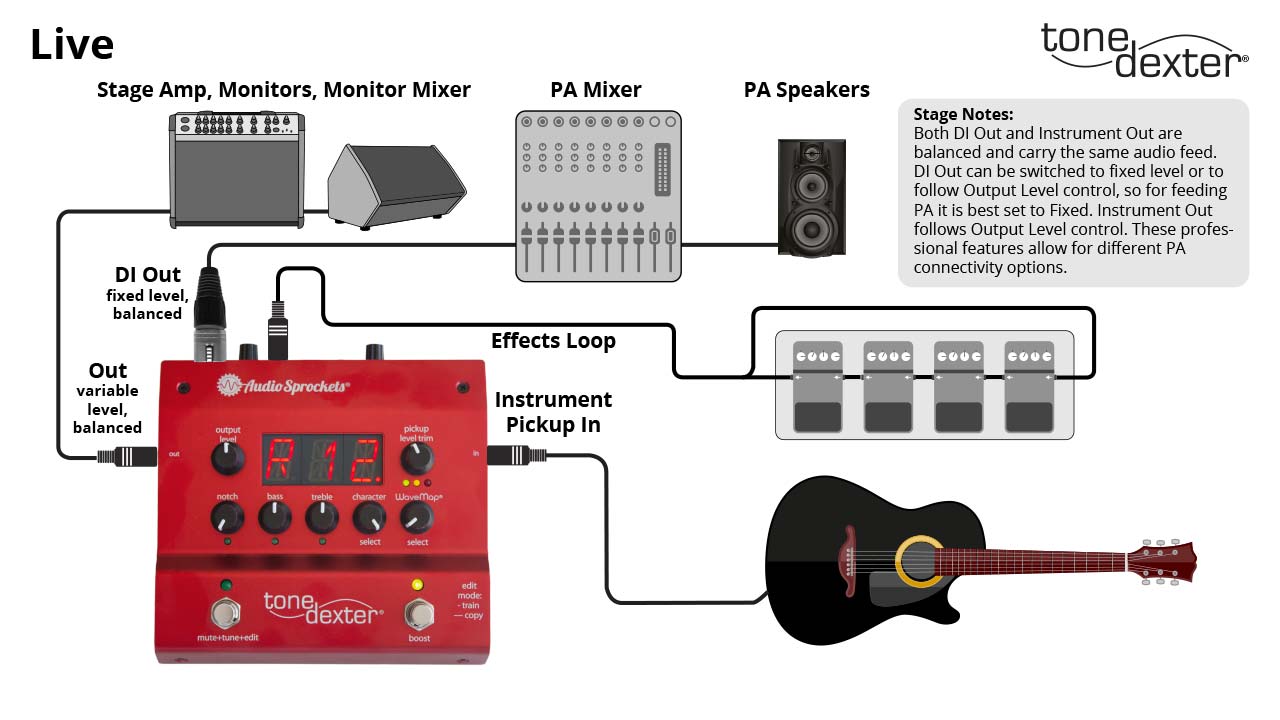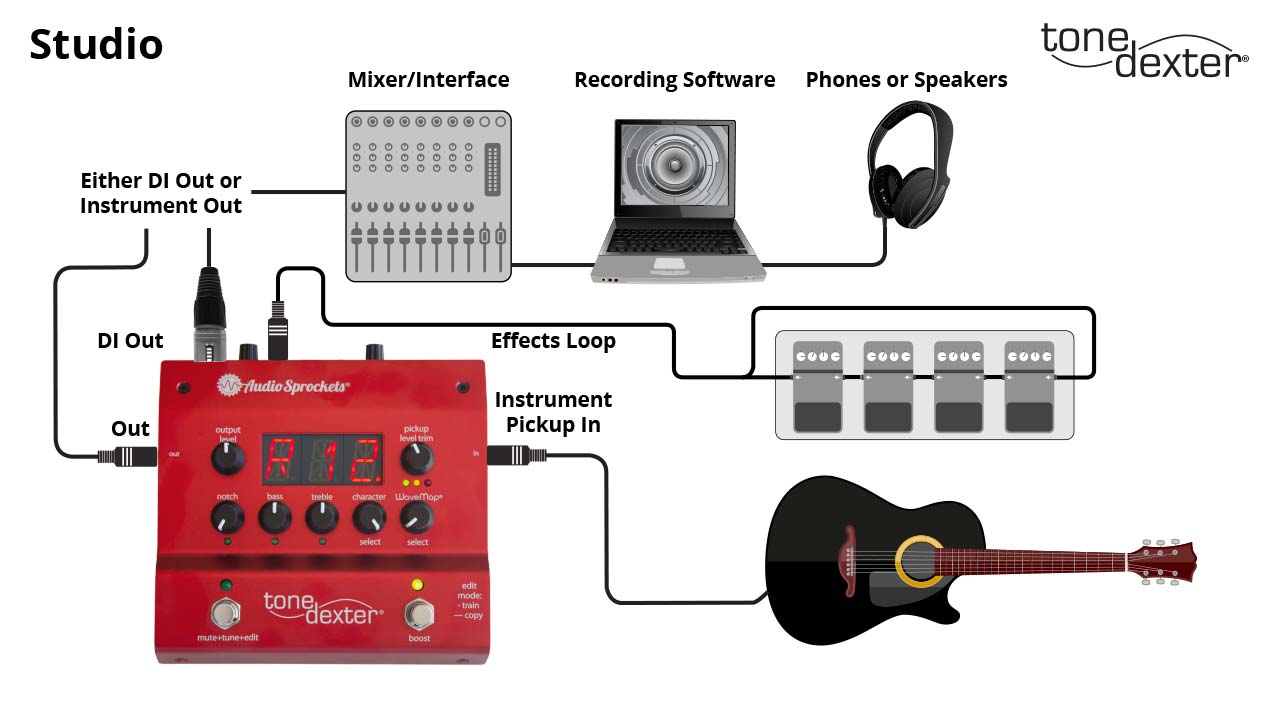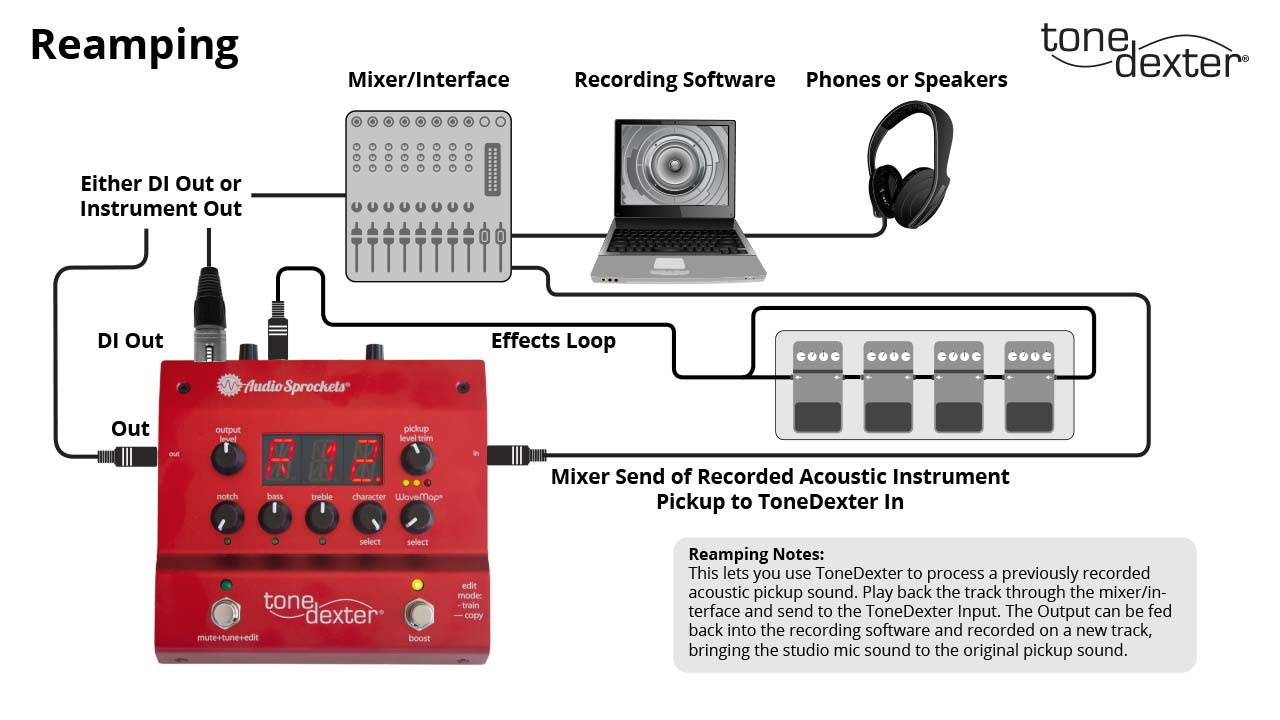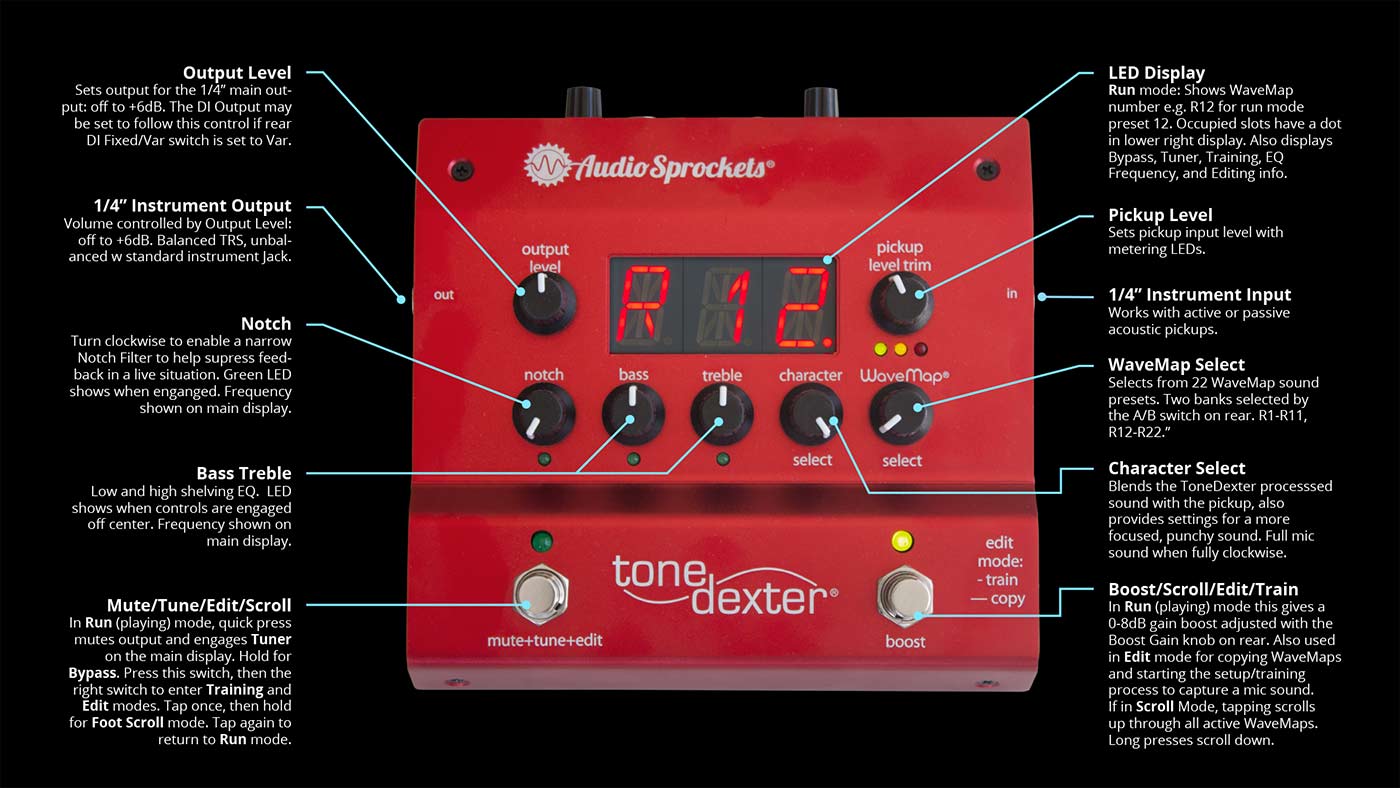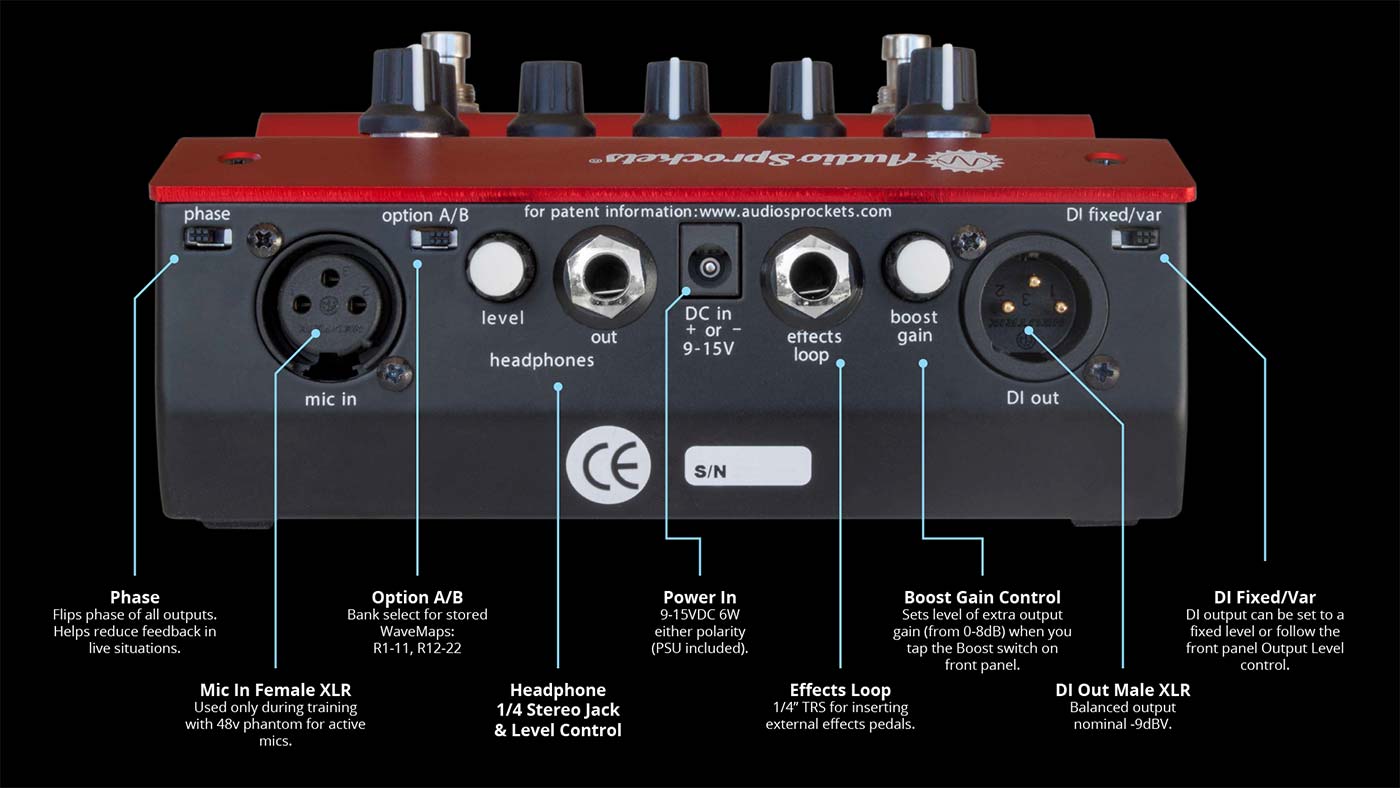Legacy ToneDexter
Due to a worldwide shortage of computer chips following an unprecedented demand due to Covid related supply issues, we discontinued the original ToneDexter described here in 2022. Check out the new ToneDexter II.
Subscribe to Audio Sprockets News Emails
Subscribe to Audio Sprockets News Emails
Legacy ToneDexter Support
Check out these pages covering support for the original ToneDexter that was discontinued in 2022
Legacy ToneDexter Product Information
Suport Links
- Legacy ToneDexter User Guide
- Legacy ToneDexter Setup and Training
- Legacy ToneDexter FAQs
- Legacy ToneDexter Software Download and Installation
- Legacy ToneDexter WaveMap Transfer & Backup
- Free Legacy ToneDexter WaveMaps for Yamaha Silent & Electric Guitars
- Legacy ToneDexter WaveMaps for Solid Body Electric Violins & Cellos
- Creating Custom WaveMaps for Legacy ToneDexter with a DAW
- Legacy ToneDexter Board Repair

How ToneDexter Works
Training
Start by plugging in both a mic and your pickup into ToneDexter. Play your instrument for two minutes while ToneDexter builds a WaveMap to make your pickup sound like your mic. Then store the sound into one of 22 WaveMap locations in ToneDexter. Once you have it, you no longer need the mic.
You can store WaveMaps of different mic positions to give you a selection of sounds when you play.
Connectivity
Click on image to see connections for Training, Live, Studio and Reamping…
Features
- Works on any acoustic instrument, with most active or passive piezo pickup systems
- Stores 22 custom WaveMaps, selectable via 11 position rotary switch and bank select switch
- Mute switch that activates a built-in high precision tuner, accurate to within 1 cent
- Boost switch for solos with 0-8dB of settable gain via rear panel pot
- Bass and Treble EQ
- Sweepable notch filter for feedback suppression
- Character control which adds additional punch to the WaveMap
- Latency less than 1ms
- Effects loop (TIP send, RING return)
- 1/4″ pickup input, high impedance (1MΩ)
- 1/4″ line output with output level pot on front panel
- XLR DI output, with rear panel option switch for fixed level or level that follows output level pot
- Analog boost and mute circuits positioned after effects loop, so no headroom loss when boosting
- XLR mic input with 48V phantom supply, used for training
- Headphone output
- Phase (polarity) switch on rear panel
- +/-15V internal supplies for professional headroom and dead quiet operation
- SD card slot for field upgrade of software
- 6.3″ W x 5.9″ D x 2.3″ H
- 2.0 lbs
